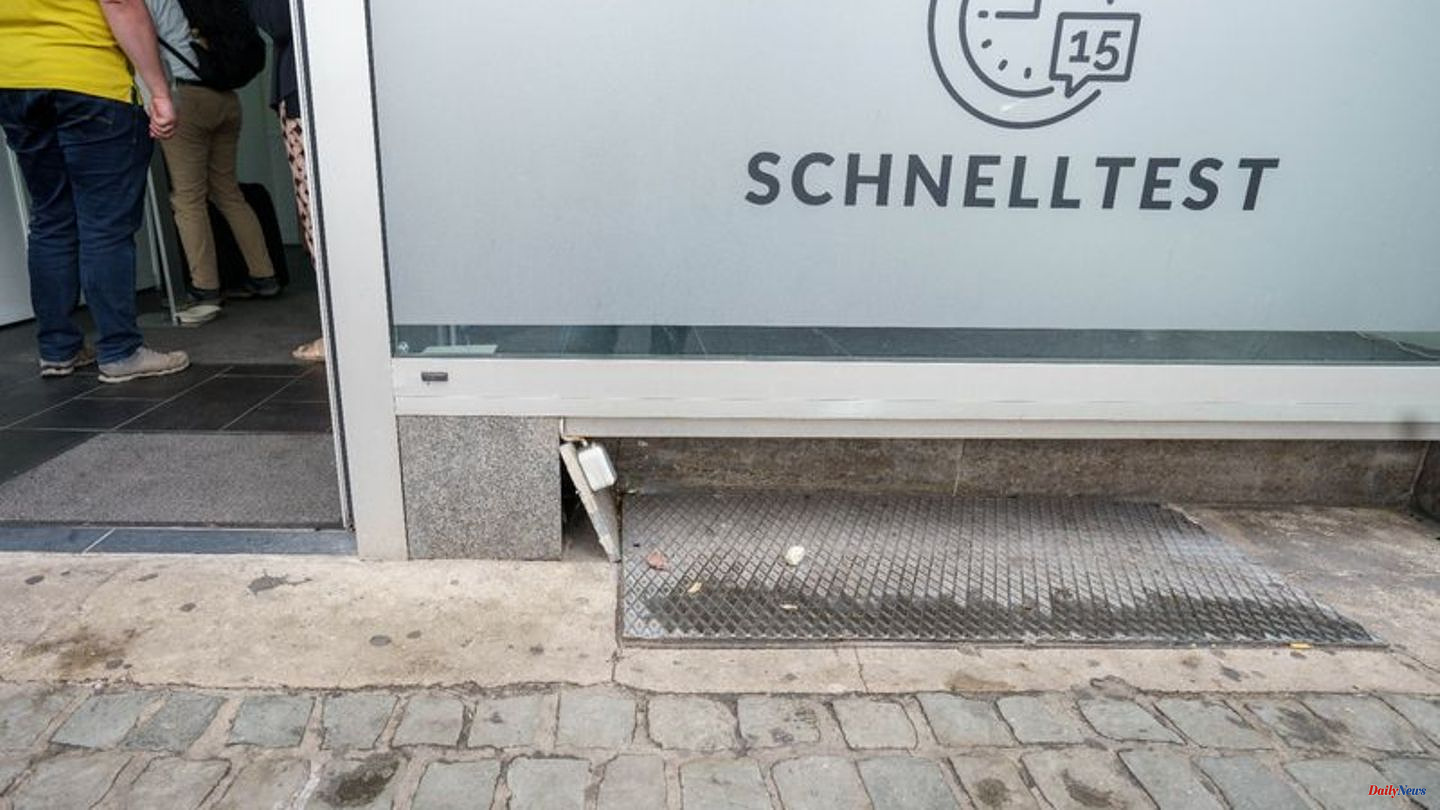In the Corona summer wave, the Robert Koch Institute is not giving the all-clear. Incidences and other values have recently fallen significantly in some cases.
The general infection pressure and the associated burden on the health system remain high, according to the institute's weekly report on Covid-19. At the same time, the RKI sees a further need for vaccination among millions of people. Meanwhile, the Ministry of Health announced that Minister Karl Lauterbach had contracted the corona virus. The discussion about the protective measures planned by the federal government from autumn has meanwhile continued.
Patient advocates are demanding free tests
According to the German Foundation for Patient Protection, rapid corona tests in test centers should be free again. The test providers are currently being reimbursed, said board member Eugen Brysch of the German Press Agency. Health Minister Karl Lauterbach (SPD) has still not legally secured the agreement reached at the beginning of July with the Association of Statutory Health Insurance Physicians for the settlement of the so-called citizen tests. "Karl Lauterbach has been asked to make this binding by August 8," explained Brysch.
Since the end of June, citizen tests have no longer been free for everyone, but only for certain risk groups and occasions. On other occasions, such as indoor events, they are available for an additional payment of three euros. The National Association of Statutory Health Insurance Physicians (KBV), which is responsible for billing the test centers, had criticized the regulation as too bureaucratic and announced that it would no longer be able to bill the tests.
incidence decreases
The RKI recorded a significant decrease of 21 percent in the nationwide seven-day incidence in the past week compared to the previous week. In addition to the incidence, which incompletely reflects the infection process, the RKI looks at other data sources. The values for acute respiratory diseases in the general population, such as the number of doctor visits, have fallen compared to those in the previous week - but are still higher than in previous years at this time, the experts point out. In addition, outbreaks in nursing homes continued to increase.
According to the RKI, deaths related to the virus have recently reached a fairly stable level - 444 were reported last week. The number of hospital admissions of people with severe acute respiratory infections and a Covid 19 diagnosis fell in the last week for the first time in a long time. With a view to the next few weeks, the RKI expects a “continued high number of hospitalizations, Covid 19 patients requiring intensive care and deaths, especially in older age groups”.
Omicron variant predominant
The omicron subline BA.5 has increased somewhat at a high level and, according to the latest data, has been found in more than 92 percent of the positive samples. The RKI once again emphasizes the importance of the corona vaccination. The booster vaccination also protects very effectively against severe courses in Omicron times, which is why, in addition to starting vaccination for the unvaccinated, vaccination gaps must also be closed for those who have only had basic immunization so far, writes an RKI team in the new monthly report on Covid 19 vaccinations.
After the previous low in vaccination in June, a little more than a million vaccinations were registered for the first time in July than in the previous month. Nevertheless, according to the experts, around 1.3 million people over the age of 60 and around 7.8 million people under the age of 60 who are only basic immunized would have to refresh their vaccination protection with at least one vaccination. Around 7.3 million adults under the age of 60 and 1.9 million over the age of 60 would not have received a vaccination at all. According to current monitoring as of the beginning of August, a good 85 percent of the adult population are basic immunized, a good 72 percent have received a first booster vaccination, almost 10 percent a second.












